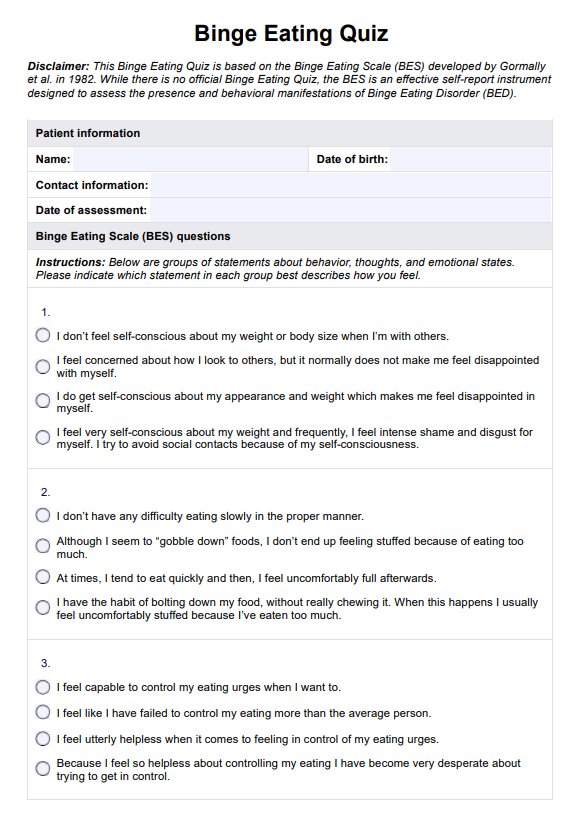Binge eating disorders can be initially screened using structured self-report tools such as the Binge Eating Scale (BES) or other standardized eating disorder tests. A mental health professional should follow up with a comprehensive clinical interview to confirm a diagnosis based on DSM-5 criteria.

Binge Eating Quiz
Use Carepatron's free Binge Eating Quiz PDF download to assess patient habits and easily identify, understand, and manage binge eating behaviors.
Binge Eating Quiz Template
Commonly asked questions
Binge eating involves consuming an unusually large amount of food in a short period, accompanied by a sense of loss of control or overeating. It often includes emotional distress, such as guilt, and occurs without physical hunger.
The DSM-5 defines binge eating disorder as recurrent binge episodes (at least once per week for three months) marked by eating rapidly, eating until uncomfortably full, or eating alone due to shame. The episodes must cause significant distress and are not followed by purging behaviors.
EHR and practice management software
Get started for free
*No credit card required
Free
$0/usd
Unlimited clients
Telehealth
1GB of storage
Client portal text
Automated billing and online payments











